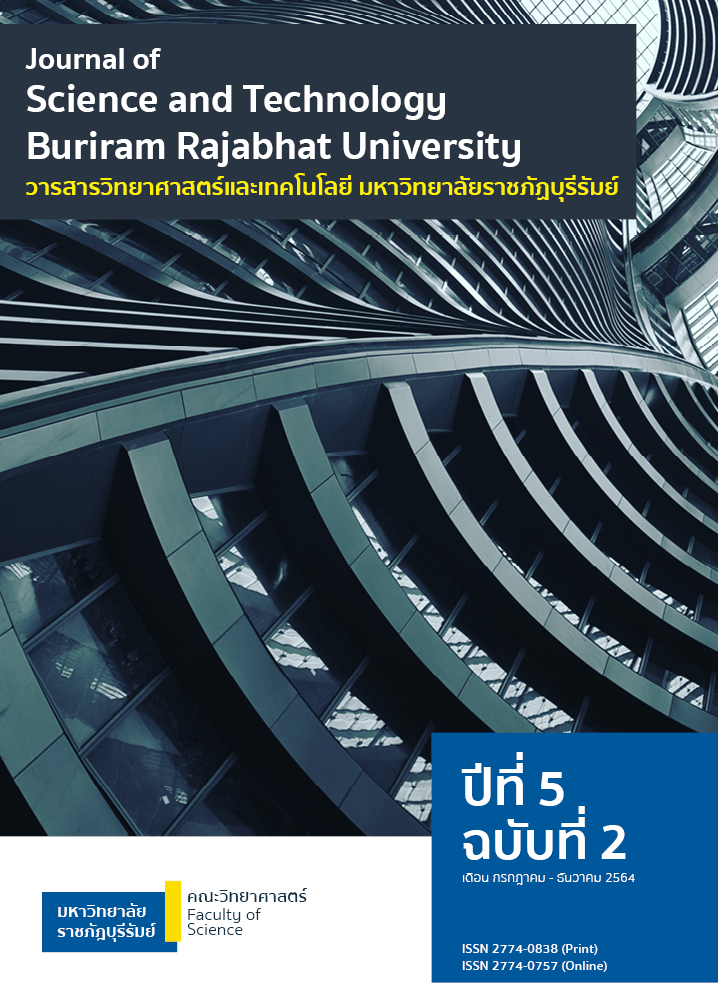Effect of dietary supplementation of probiotic (Bacillus subtilis) on productive performance of Leaung Hang Khaow native chickens
Main Article Content
Abstract
The objective of this study was to study the effect of dietary supplementation of probiotic (Bacillus subtilis) DL-Pro 1 on productive performance of Leaung Hang Khaow Krabin Buri native chickens. Mixed sex of sixty chickens at 8 weeks old were used in this study. The experimental design was completely randomized design (CRD) by the experiment was divided into 3 treatments and each treatment consisted of 2 replications. Treatment 1 was control (no supplementation with probiotic (Bacillus subtilis) DL-Pro 1. Treatment 2 was supplemented with probiotic DL-Pro 1 at 0.2 percent, and Treatment 3 was supplemented with probiotic DL-Pro 1 at 0.4 percent. The study was conducted 56 days. The data of weight gain, daily feed intake, growth rate, feed conversion ratio, and survival rate were collected through the experiment. Data was analyzed using Analysis of variance (ANOVA) and compared the average by Duncan’s new multiple range test (DMRT). The results showed that dietary supplementation of probiotic (Bacillus subtilis) DL-Pro 1 had no significantly different in weight gain, daily feed intake, growth rate, feed conversion ratio, and survival rate (P > 0.05). In conclusion, dietary supplementation of probiotic (Bacillus subtilis) DL-Pro 1 had no effect on productive performance of Leaung Hang Khaow native chickens.
Article Details

This work is licensed under a Creative Commons Attribution-NonCommercial-NoDerivatives 4.0 International License.
เนื้อหาและข้อมูลในบทความที่ลงตีพิมพ์ในวารสารวารสารวิทยาศาสตร์และเทคโนโลยีถือเป็นข้อคิดเห็นและความรับผิดชอบของผู้เขียนบทความโดยตรงซึ่งกองบรรณาธิการวารสาร ไม่จำเป็นต้องเห็นด้วย หรือร่วมรับผิดชอบใด ๆ
บทความ ข้อมูล เนื้อหา รูปภาพ ฯลฯ ที่ได้รับการตีพิมพ์ในวารสารวารสารวิทยาศาสตร์และเทคโนโลยีถือเป็นลิขสิทธิ์ของวารสารวารสารวิทยาศาสตร์และเทคโนโลยีหากบุคคลหรือหน่วยงานใดต้องการนำทั้งหมดหรือส่วนหนึ่งส่วนใดไปเผยแพร่ต่อหรือเพื่อกระทำการใด ๆ จะต้องได้รับอนุญาตเป็นลายลักษณ์อักษรจากวารสารวารสารวิทยาศาสตร์และเทคโนโลยี ก่อนเท่านั้น


